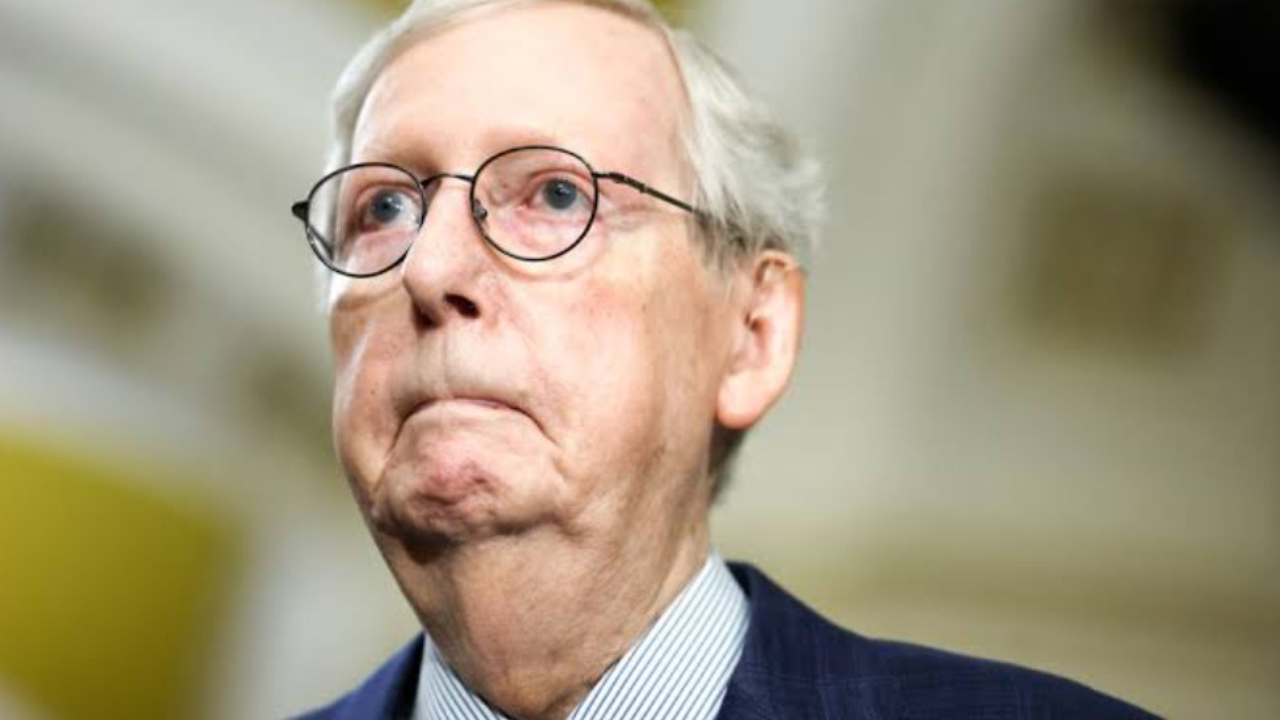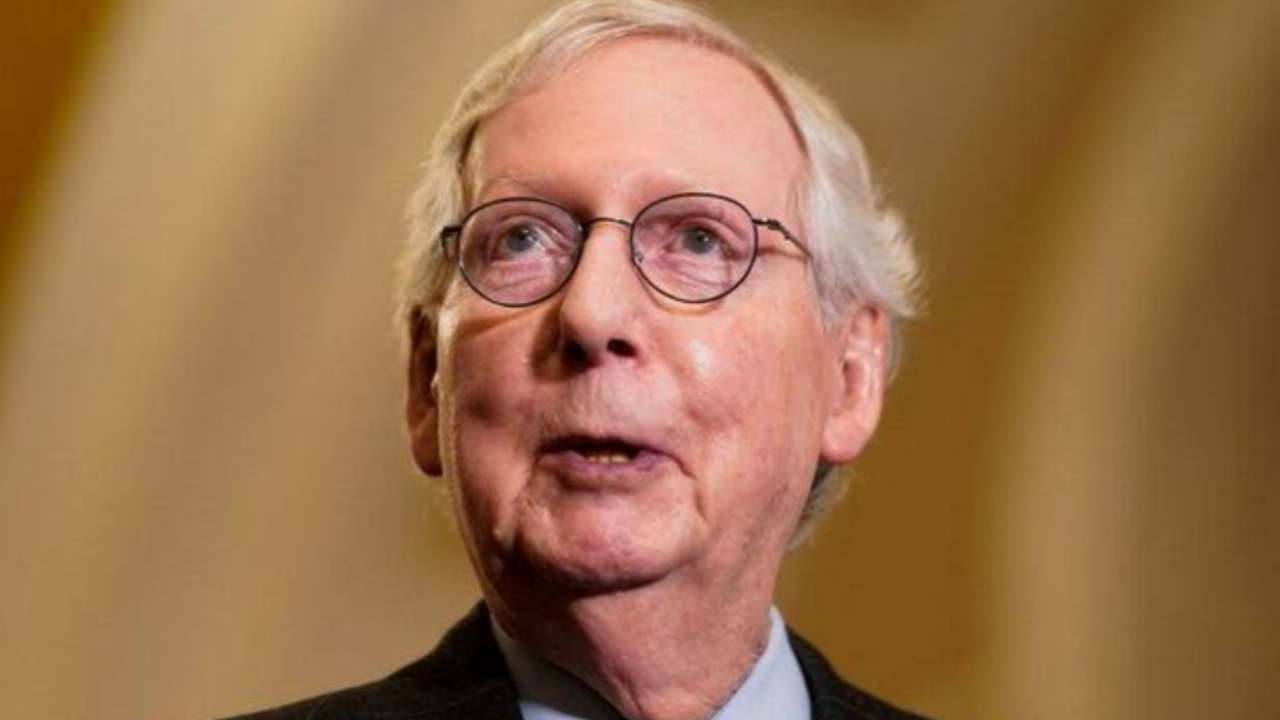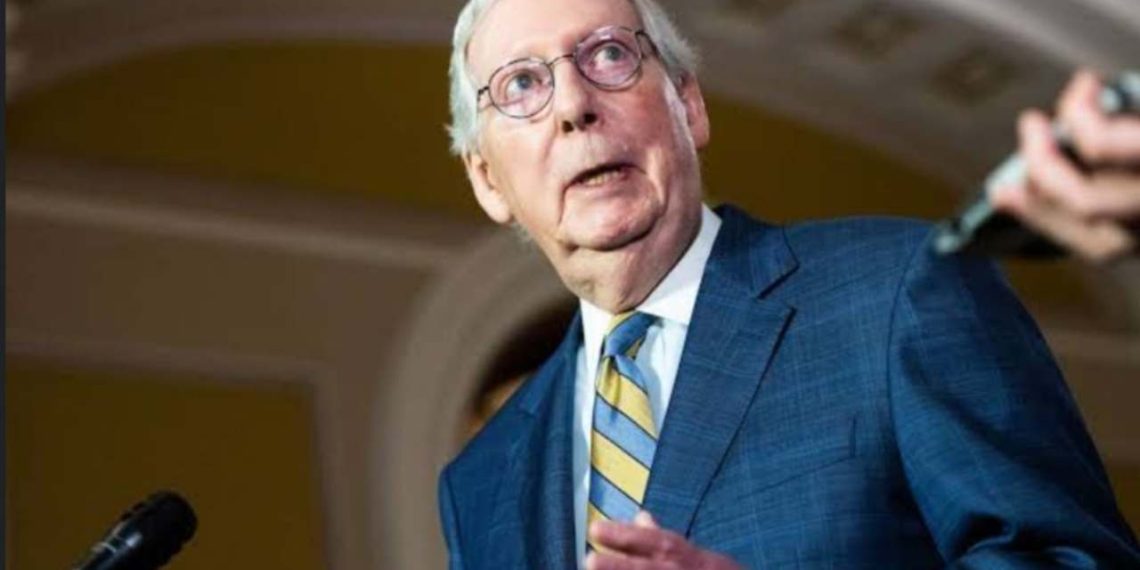Sen. Mitch McConnell’s announcement to step down from leadership by year’s end has ignited a nine-month scramble among Senate Republicans vying to succeed him.
Amidst a presidential race and a campaign for control of the chamber, the leadership transition has become a focal point. McConnell’s unexpected decision hastened a contest that had been brewing behind the scenes.
As contenders vie for the opportunity to lead, they’re actively courting their colleagues, eager to become the first fresh face of their party in the Senate in nearly twenty years.
“It is a lot of runway,” Sen. John Thune of South Dakota, the No. 2 Republican, said about the months remaining before the party’s first seriously contested leadership race since McConnell, of Kentucky, took over in 2007. “But it is what it is. So you just have to adapt.”
Congressional leadership contests epitomize the inner workings of Capitol Hill, where secret-ballot outcomes hinge on personal relationships, grudges, and individual ambitions rather than solely on policy stances or institutional concerns.

The electorate remains uncertain, encompassing winners of November’s elections while excluding those defeated.
This dynamic was highlighted recently when Sen. John Cornyn of Texas, a former No. 2 Republican, fervently backed Kari Lake, the leading Republican contender in Arizona’s Senate race.
As the sole official candidate thus far, Cornyn has launched a vigorous campaign to succeed McConnell, rallying support among his 48 Senate colleagues and beyond.
“I’ve called them all,” Cornyn said in an interview. “I’ve called them all and met with a number of them personally. Most of them say, ‘Well, you know, we’d like to have a more extended conversation.’”
While Cornyn hinted at securing commitments, many Senate Republicans are refraining from pledging allegiance, aiming to leverage their votes strategically and pit contenders against each other.
With a long road ahead, the specter of former President Donald Trump casts a shadow over the race. McConnell’s decision to step aside, despite his lack of communication with Trump, tacitly concedes his misalignment with the MAGA base, prompting his departure from leadership.
Similarly, Thune and Cornyn, though previously critical of Trump, have recently endorsed him, navigating the complex dynamics of the party.
It’s plausible that Sen. John Barrasso of Wyoming, currently the No. 3 Senate Republican, may enter the fray alongside Thune and Cornyn. Barrasso’s expressed interest in leadership, coupled with his positioning to the right of his potential rivals, suggests a competitive bid.
Despite not formalizing his intentions, Barrasso’s recent endorsement and appearance with Kari Lake in Arizona indicate a proactive stance. Furthermore, his strong ties to Trump add weight to his candidacy.
Another contender gaining attention is Sen. Steve Daines of Montana, who leads the National Republican Senatorial Committee, tasked with securing Senate seats for the party.
Daines’ success in November could bolster his candidacy, drawing support from those he assisted in securing seats and other appreciative colleagues. Additionally, Daines’ proximity to Trump enhances his appeal as a potential candidate.

The far-right faction within Senate Republicans may seek to advance a candidate or wield their voting bloc to extract concessions, mirroring the tactics of archconservatives in the House. There’s speculation that Sen.
Rick Scott of Florida could be pushed forward again, despite his defeat by McConnell in a previous leadership election in 2022.
“I ran 14 months ago because I think we have to have change,” Scott said, though he did not declare his own candidacy. “I think there’s going to be a lot of people.”
The leadership battle is anticipated to be a distraction, with contenders maneuvering for advantage, potentially escalating if tensions arise. However, candidates assert their commitment to maintaining civility, at least in public discourse.
“I don’t expect any animosity between the members,” Cornyn said. “I respect my colleagues. I think John Thune will be in the race, and John’s a good senator and a friend of mine.”
With the election looming, some senators propose that McConnell relinquish leadership sooner, prompting an earlier internal contest.
However, McConnell’s current stance suggests he is resolute on delaying his departure until after the election.




